Key Takeaways:
- An auction process is a mechanism where exchange auctions the investor’s stock holding when the person had sold the stock but is unable to deliver it within a stipulated time period.
- An auction can be a live auction, online auction or sealed bid auction.
- Before the start of an auction, the buyers are allowed to check the items on sale and examine the same.
- The minimum or lowest auction price will be 20% below the closing price of the day before the day of the auction
- The exchange conducts an auction on T+2 day and on behalf of the defaulting seller, it purchases back the stock from the Auction Participant.
| Table of Contents |
|---|
| What is Auction Market? |
| Types of Auction |
| Working of Auction |
| What is Auction Pricing |
| Auction Timing and Participants |
| Example |
| Can a client profit from this auction process? |
What is Auction Market?
An auction process is a mechanism where the exchange auctions the investor’s stock holding when the person had sold the stock but is unable to deliver it within a stipulated time period. This mechanism is basically a kind of penalty apart from the fees for the auction. Hence, keep a precaution that your stock doesn’t go into the auction process. It takes place mostly due to an investor’s carelessness.
Whenever you sell shares, there’s always a buyer on the other side. So when you sell shares and cannot deliver it back to the buyer for which he had already paid money, in such a scenario, the exchange calls for an auction. So your broker will try to purchase the shares in a buy-in auction market on T+2 day and the settlement of auction shall be done on T+3 day (holidays are not included).
In case of a successful auction, the client in default (i.e. you) will have to pay the actual auction price + Brokerage + Penalty (this depends on your broker).
Types of Auction:
1. Live Auction:
Also known as the live on-site auction, this type of auction is conducted in a meeting facility or room like a hotel convention facility.
The interested bidders have already inspected the goods that are being auctioned.
Pictures, as well as the descriptions of the items on sale, are displayed when the bidding process is officially opened.
2. Online Auction:
During online auctions, bidders compete on a particular product and then submit their bids online, over the internet.
Internet auctions haven now become an integral part of electronic commerce due to the flexibility and possibilities they provide.
3. Sealed Bid Auction:
This type of auction is used where there are confidential bids. If the seller is considering optional terms of sale, then sealed auctions are usually chosen.
Working of Auction:
Before the start of an auction, the buyers are allowed to check the items on sale and examine them same.
After the potential buyers have viewed all the items and are interested in placing their bids, they must first register with the auctioneer.
Learn basics of trading with Stock Market Made Easy Course by Market Experts
This registration process requires buyer’s details like phone number, address, and identification like a passport.
Each registered bidder is given a bidder card which has a number used to identify all participants.
The auctioneer gives a description of the item for sale and starts the bidding with a price.
Then, the bidders then call out their bids, with each bid being higher than the last one.
The process finishes when there are no more bids, and the buyer who makes the highest bid gets the item. The highest bidder takes ownership of the item after paying their bid price.
What is Auction Pricing?
The auction pricing depends on the stock price calculation on the auction day. The minimum or lowest auction price will be 20% below the closing price of the day before the day of the auction. Suppose if it is lower, you might gain but this difference goes to the Investor Protection Fund (IPF) and it is not given to you (some broker may pass the gain to you). But say if it is higher, you need to pay the difference.
The closeout on the auction day (i.e. T+2 day) will basically be the highest price prevailing in the market till the auction day from the day of trading or 20% above the closing price on the auction day (whichever is higher).
If the auction is not successful, no one is ready to sell in the auction (generally happens when the stock hits the upper circuit), the sale transaction is canceled by the exchange and the defaulting member has to pay the highest price prevailing from the day of trading (T) up to a day prior to the auction day OR 20% above the official closing price on the day prior to auction day, whichever is higher. The buyer of those shares gets a full refund.
Auction Timing and Participants
The auction process is conducted between 2-2:45 pm on a daily basis. It can be participated only by the member broker of the exchange and sell shares that are short delivered.
Example
Let’s understand the concept of the auction with the help of a practical example.
On Monday, Bittu short sold 1 share of Apollo Hospitals @ Rs 1080.
On Wednesday (i.e. T+2 day), on behalf of Bittu, his broker is required to deliver the stock to the exchange. Say he defaults on delivery.
On this day, the exchange notices that these shares had not been delivered by the broker and it accordingly blocks a sum of money from the broker’s account which is termed as Valuation Debit.
The share valuation price for securities that were not delivered on the settlement day is the closing price of such securities on the immediate trading day (T+1) preceding the pay-in day. Assuming the closing price of Apollo Hospital on T+1 day stands at Rs 1090, the exchange will block the sum equal to Rs 1090 from the broker’s account.
The exchange conducts an auction on T+2 day and on behalf of the defaulting seller, it purchases back the stock from the Auction Participant.
The exchange actually delivers the shares back to the actual buyer back on T+3.
Say the stock was bought back in the auction market at Rs 1110. In that case, an additional sum of Rs 20 will be blocked by the exchange (which is the difference between the Auction purchase price @ Rs 1110 and the Valuation Debit of Rs 1090).
However, if the stock would have been purchased in the auction market at Rs 930, so the difference amount (i.e. Rs 1090-930) will be transferred to the Investor Protection Fund (IPF).
But in case, there isn’t any seller in the auction market, the exchange conducts the closeout in the following manner.
Closeout will be at the highest price prevailing in the NSE from the day of trading till the auction day or 20% above the official closing price on the auction day, whichever is higher.
Now suppose, the highest price from the day of trading to the auction day stands at Rs 1120. Say the closing price on T+2 day (i.e. auction day) was Rs 1110. So the closeout will be higher of Rs 1120 or Rs 1332 (1110 *120%) i.e. Rs 1332 (closeout price). In this case, the additional sum of Rs 42 will be blocked by the exchange.
Can a client profit from this auction process?
Suppose on T+1 day, the closing price of Apollo Hospital was Rs 1040 (This is the valuation debit; which is the Closing Price of the share not delivered on T+1 day x No. of shares not delivered.).
Say the exchange bought back the share from the auction market at Rs 1060. So presently, Rs 1060 will be debited from the broker’s account and the difference of Rs 20 (The price at which you sold i.e. Rs 1080, and the price you bought back in the auction market i.e. Rs 1060) will be your profit. But this profit in most cases is transferred to the Investor Protection Fund (IPF).
A way to avoid the problem of an auction can be online trading.
When you make all the deals yourself without depending on the broker, it will be easier for you to track the stocks you bought and the stocks you hold. You will be able to track your portfolio through a best trading app or portal and thus an effective way to avoid the auction of your stocks.
Actually, an auction process is an effective process from the buyer’s point of view. In fact, an auction process is done to provide the buyers with the stocks which they have purchased from a seller.
Happy Learning !
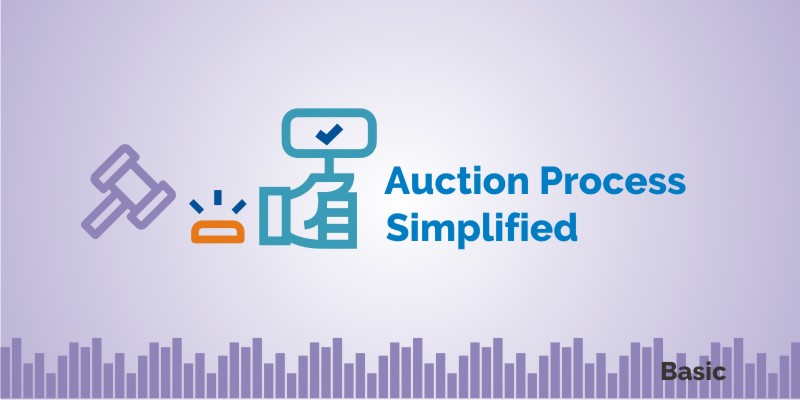

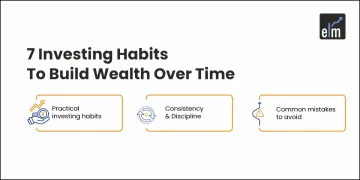
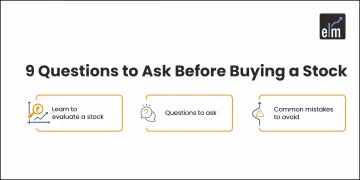
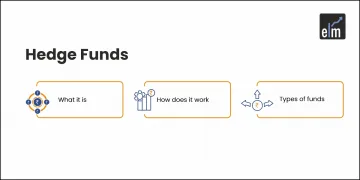
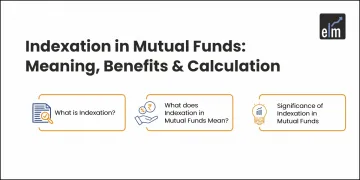


IN INTERDAY FIRST I SELL 150 SHARE @1243.00 OF KAYA. IMMEDIATELY I BUY OF SAME PRICE BUT BROKER SAY IT GOSE TO THE SETTLEMENT. HOW MUCH SHALL I LOSE AFTER SETTLEMENT? KINDLY CONFIRM.
PLS SEND REPLY TO MY E-MAIL ID
Hello Goutam,
Thank you for your comment
We are an educational institute and hence we are not authorized to provide any advice on trading.Your broker will be the right person to answer your question.
Happy Reading!
Sir, Today ( Friday 09/02/2018) I sold 5 Wockhart shares @ 888/- and could not purchased i.e. short sold. Today’s closing price is 908/-. Let me know the auction date, and maximum how much loss I can expect. Pl. Reply on my e-mail id. Thanks. Raj Kumar Jain
Hello Raj,
Thanks for your comment.
NSSCL conducts an auction on the T+2 day.
Your broker will be the right person to guide you with respect to the loss incurred by you as well as the exact auction date.
To get a more comprehensive knowledge on Auction: you may do: NSE Academy Certified Capital Market Professional(E-NCCMP)
Happy Learning!
Sir,
On 14th feb i had short sold 94 shares of 8k miles at 821 and forgot to deliver it on same day. On T+1 day the share fell and closed at 788. On 16th feb auction had happened. Today is 20th feb but settlement has not yet done. They have blocked 150% of short sold amount. Could you please let me know when the settlement is going to done and how much amount i am going to get back. Thanks in advance!!
Hello Abhayashis,
Thank you for your comment.
Your broker will be the right person to guide you regarding when auction settlement will take place and how much amount you will get back.
Usually, auction settlement takes place on T+3 day(provided there are no holidays).
To get a more comprehensive idea on auction and other capital market concepts you may do: NSE Academy Certified Capital Market Professional (E-NCCMP)
Happy Learning!
Why only members other than defaulting member can participate in this auction??why normal investors can’t participate?
Hello Umamaheswar,
Thank you for your comment.
As per SEBI Regulations: An investor cannot directly participate in the Auction process.They indirectly participate in this process through their share brokers (i.e members of the exchange).
To get a better idea of Auction Process and other concepts of Fiancial Markets: you may do NSE Academy Certified Capital Market Professional(E-NCCMP) course.
Happy Learning!
dear mam, i hold 27 shares of venkys which i sold on 19th march,2017 and the same day nse sold those 27 shares at such higher rate in the auction. now 27 quantity have been sold 2 times from my demat account. now how to handle such situation and how such share will be brought as there is no fault of me. pls reply mam
dear mam, i hold 27 shares of venkys which i sold on 19th march,2017 and the same day nse sold those 27 shares at such higher rate in the auction. now 27 quantity have been sold 2 times from my demat account. now how to handle such situation and how such share will be brought as there is no fault of me. pls reply mam as i dont understand what to do now
Hello Neeraj,
Thank you for your comment.
Your broker will be the right person to guide you in this situation.
To know more about the auction process and other basic concepts of Financial markets you may do: NSE Academy Certified Capital Market Professional(E-NCCMP)
Happy Learning!
I bought 3000 Airtel shares and two days later 975 shares got auctioned without my permission I got the share money why?
Hello Vamsi,
Thank you for your comment.
Your broker will be the best person to guide you with regards to the issue being faced by you.
If you want to get a 360 degree perspective on financial markets you may enroll in our course: Certification in Online Research, Trading & Advisory
Happy Learning!!